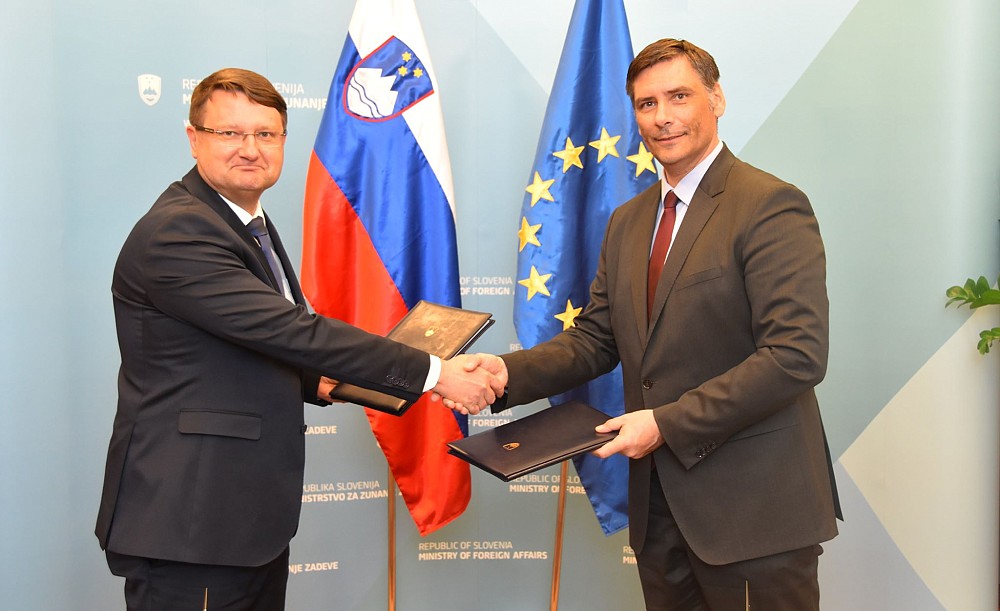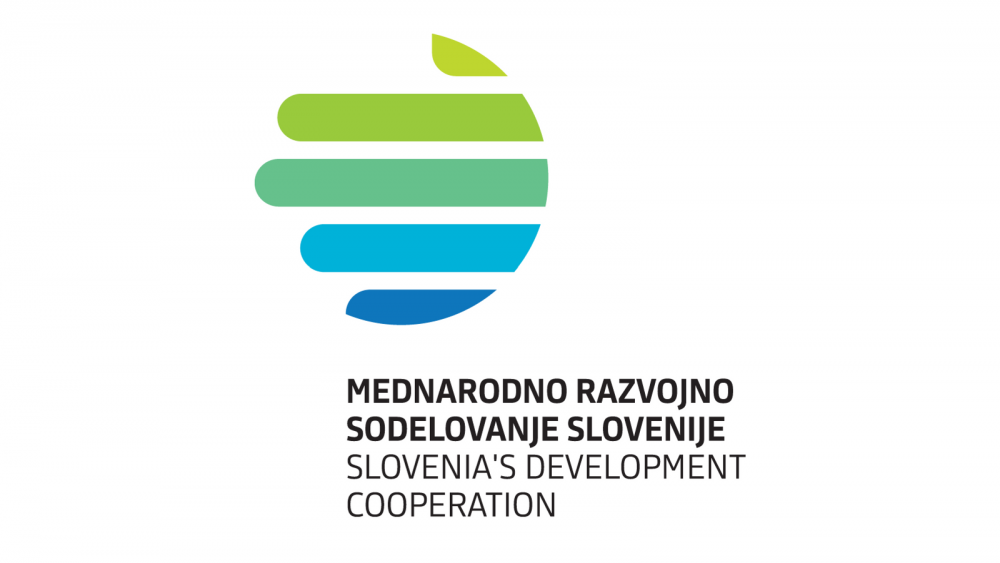Slovenia Continues to Support ITF Projects
Ministry of Foreign Affairs of the Republic of Slovenia will support 8 development and humanitarian projects of ITF Enhancing Human Security (ITF). The ministry will allocate 775,000 EUR through two-year agreements intended for the support of projects of enhancing human security and development in areas affected by armed conflict or other disasters. The agreements of cooperation on 8 projects were signed by ITF Director Ambassador Tomaž Lovrenčič and Deputy Secretary General of the Ministry of Foreign Affairs Mr Primož Koštrica.

The Republic of Slovenia established ITF in 1998 and has continued to provide invaluable support to ITF activities ever since, among others through the Ministry of Foreign Affair’s Department for International Development Cooperation. In this period, the Republic of Slovenia has contributed over 12 million EUR for humanitarian and development projects, where over 5 million EUR has been donated through the Ministry of Foreign Affairs.

The following ITF projects will be implemented with the support of the Republic of Slovenia:
“Medical Rehabilitation of 60 Children from Belarus”
When the nuclear accident in Chernobyl occurred in 1986, large amounts of radioactive particles were released into the atmosphere, which hit the border regions of today's Russia, Ukraine and Belarus. The negative consequences of radioactive contamination have influenced the health of later generations. ITF, in cooperation with the Slovenian Red Cross Youth and Health Resort and other partners, has prepared the continuation of the rehabilitation program aimed at contributing to the relief and treatment of illnesses of Belorussian children, who are between 7-14 years old. Their medical condition and illness is a direct result of a nuclear accident in Chernobyl.
“Enhancing Psychosocial Wellbeing of Children from Ukraine”
The psychosocial wellbeing of children from Ukraine will be strengthened through the rehabilitation program, which includes various therapies, relaxation activities and other courses. In the next two years at least 128 children from Ukraine, who have suffered due to traumatic events of an armed conflict within the country, will gather at the Slovenian Red Cross Youth and Health Resort for their rehabilitation process.
“The Continuous Medical Rehabilitation of a Victim of Armed Conflict in Ukraine”
The girl, who lost her left leg in 2015 during the armed conflict in Mariupol, Ukraine, has already undergone four phases of medical rehabilitation, where she received a below-knee and swimming prosthesis. However, due to her continuous growth, the rehabilitation requires a sustainable and comprehensive approach in order to enhance her general health and well-being as well as help with the long-term reintegration process.
“Support to Mine Detection Centre (MDC) Polyclinic in Kabul, Afghanistan”
The project enables free healthcare support for the population of northwest Kabul, where the MDC Polyclinic is located. More than 20,000 various free medical services will be provided, in particular gynecological, dental, physiotherapeutic services, examinations and consultations. The project specifically focuses on the services aimed at women and children.
“Psychosocial Support of Victims of Conflict and the Support in the Field of Rehabilitation in Gaza Strip and West Bank”
The project, co-financed by the Republic of Korea, is firstly aimed at providing psychosocial support to children, victims of armed conflict in Gaza Strip. Secondly, it focuses on contributing to the faster and more effective reintegration of victims into the society as well as improving the expertise on comprehensive rehabilitation. Lastly, it targets the improvement of skills of physical medicine and rehabilitation experts.
“Mine and Explosive Remnants of War Risk Education (MRE) for Syrian Refugees in Jordan”
The aim of the project is to raise risk awareness and safety among Syrian refugees in Jordan as well as to minimize the number of possible mine/ERW victims upon returning to their homeland. The program focuses on the implementation of MRE workshops for approximately 17,000 Syrian adults and children.
“Support of ITF Representative Office in Bosnia and Herzegovina (BIH)”
Bosnia and Herzegovina (BIH) is still confronted with the issues of mine contamination and UXO, who endanger the civilian population and halt the development of the society. The purpose of ITF Representative Office in BIH is to ensure efficient and effective implementation of mine action program in accordance with the BIH national strategy. Currently, around 500,000 of BIH population lives on mine/UXO suspected areas. The goal in 2019 is to decrease the size mine suspected land under 1,000 square kilometers. With the support of Ministry of Foreign Affairs Development Cooperation, ITF Representative Office in BIH will support activities of demining, coordination with national authorities, the donor community and other relevant partners.
“Macroeconomic fiscal model for ECOWAS”
The Macroeconomic Fiscal Model for Economic Community of West Africa States (ECOWAS) project, financially supported by the Slovenian Development Cooperation, focuses on strengthening the ECOWAS capacities of the macroeconomic department (Directorate for Economic Policy Analysis) and transferring knowledge to the relevant ministries of the 15 ECOWAS Member States.
